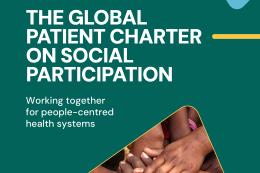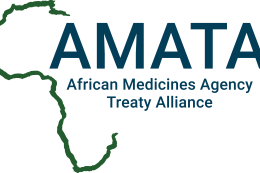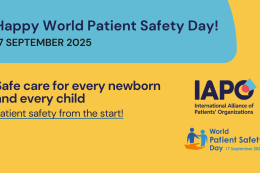8th APEC High-Level Meeting on Health & the Economy

- Health is and should be viewed as an investment. Therefore, healthcare should be considered a capital expenditure, and not revenue expenditure within the tax and duty financing.
- Equity in healthcare is not a philosophical luxury; it is a vital economic consideration. The reason for this is, if half your workforce (women) cannot access healthcare, then your economy is working at only 50% capacity. Likewise, if you do not address paediatrics then your future workers (children and adolescents) will not be able to attend school and colleges to get the skills needed for a knowledge based economy.
- Patients should be considered an asset and not a cost centre. President and CEO of the Biotechnology Innovation Organization, James Greenwood, confirmed that patient participation in medicines development and healthcare innovation has been converted into billions of $ in increase of GDP.
- Patient participation and engagement in healthcare decision making is not only a prerequisite for good governance of healthcare systems, it is also vital to improve the reach, impact, efficiency and effectiveness of healthcare services.
- In the building blocks of wide reach and high impact healthcare systems for SDG 2030 and UHC, investment in Primary Health Care is a good foundation.
- Primary Healthcare, especially the secondary prevention, can prevent patients needing acute and tertiary healthcare- the most resource intensive and expensive part of a health system.
- After reviewing the BRICs tech-savvy economies that have applied the information and communication advances to healthcare the conclusion became that digitisation allows for high scalability of any programme, especially PHC.
- Digitisation helps resource efficiency (electronic clinic booking systems) and the portable patient electronic records means that patients get seamless healthcare and reduce the administration and overhead costs.
- It helps move care away from the expensive central healthcare infrastructure (hospitals and clinics) towards the home and community. It is getting care nearer.
- Telehealth and mobile health has helped enormously in managing Non-Communicable Diseases. Health devices connected wirelessly to health centres can monitor and react to diabetes care and senior citizens.
- Therapeutic effect of Apps has been evaluated by Cochrane Review. It was found that they help in healthy eating for obese people, smoking cessation for smokers and alcohol harm reduction.
- Digitisation in health workforce strengthening [like ECHO https://echo.unm.edu/] has yielded high dividends. Large mass training and capacity building education programmes to a given standard are now possible. This includes certification and accreditation as well. This promises to improve healthcare standards and patient safety.
A catastrophic picture was painted on the development of antimicrobial resistance (AMR) in APEC Member States. It was highlighted that AMR could destroy the economies of the region just as ‘black death’ and other epidemics like Spanish flu did in Europe in the past. To tackle this challenge, APEC must react with urgency and act as one body as this is everybody’s problem. A three-pronged attack on the issue was suggested:
- Advance the knowledge and understanding of AMR amongst professional and lay groups, especially patients
- Keep a tight control on what works by conserving and stewarding the effectiveness of existing treatments
- Invest in and trigger the development of new antibiotics, diagnostics and novel therapies
Further mandatory steps that were suggested include:
- Invest in research to find new antibiotics and vaccines (Bio suggest to look at biotechnology and gene editing be used to design new responses)
- Invest in good stewardship of existing 1st line of antibiotics. This involves awareness and behavioural change (both of patients and doctors to avoid- pushy patients and push over physicians)
- Invest in new surveillance and diagnostic systems
- Share the findings across APEC Member States
The UK advisor on the Economist Intelligence Unit to APEC also advised that APEC needs to:
- Train doctors and patients on good infection prevention and control measures to help prevent infections occurring
- Make AMR control the norm in all sectors of human and animal health
- Make sure infections can be diagnosed quickly and the right treatment used
- Educate patients and animal keepers on the importance of antibiotic treatment regimens as well as the importance of adhering to them
Whilst a deem picture was painted, it was great to know that surveillance is in place to quickly identify new threats or changing patterns in resistance. Additionally, there is also a sustainable supply of new, effective antimicrobials.
For further information on this, get in touch with Kawaldip Sehmi at kawaldip@iapo.org.uk



